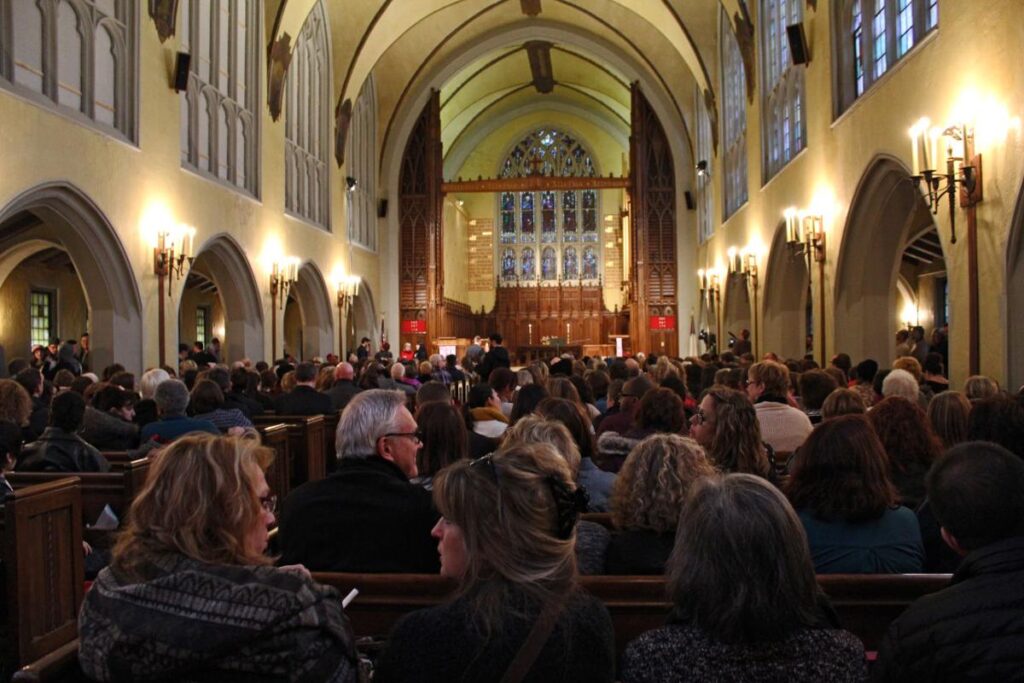The “Congregational way” became prominent in England during the 17th-century Civil Wars, but its origins lie in 16th-century Separatism. Robert Browne has been regarded as the founder of Congregationalism, though he was an erratic character and Congregational ideas emerged independently of him.
in the same way What is the origin of the Congregational Church? The origins of Congregationalism are found in 16th-century Puritanism, a movement that sought to complete the English Reformation begun with the separation of the Church of England from the Catholic Church during the reign of Henry VIII (1509–47).
What is the difference between Presbyterian and Congregationalist? In general, Presbyterians maintained a conservative theological posture whereas Congregationalists accommodated to the challenges of modernity. At the turn of the century Congregationalists and Presbyterians continued to influence sectors of American life but their days of cultural hegemony were long past.
Who formed the Presbyterian Church? The Presbyterian Church established itself in the Cleveland area in 1807, among the earliest Protestant denominations, and developed rapidly. Presbyterianism originated in the 16th-century Protestant Reformation and the teachings of John Calvin of Switzerland and John Knox of Scotland.
Why were the Puritans called Congregationalists?
The main difference between the Pilgrims and the Puritans is that the Puritans did not consider themselves separatists. They called themselves “nonseparating congregationalists,” by which they meant that they had not repudiated the Church of England as a false church.
Beside this Who started Antinomianism?
The term antinomianism was coined by Martin Luther during the Reformation to criticize extreme interpretations of the new Lutheran soteriology. In the 18th century, John Wesley, the founder of the Methodist tradition, severely attacked antinomianism.
What is the difference between Puritans and Congregationalists? Theologically, the Puritans were “non-separating Congregationalists.” Unlike the Pilgrims, who came to Massachusetts in 1620, the Puritans believed that the Church of England was a true church, though in need of major reforms.
What do Congregationalists believe about baptism? However, unlike most Baptists, Congregationalists practice infant baptism, and they view baptism as a joining of God’s family and a symbol of Christ’s resurrection. They believe this is a family that can be joined at any age.
Are Baptists Congregationalists?
Major Protestant Christian traditions that employ congregationalism include Quakerism, the Baptist churches, the Congregational Methodist Church, and Congregational churches known by the Congregationalist name and having descended from the Independent Reformed wing of the Anglo-American Puritan movement of the 17th …
Are Puritans Congregationalists? Theologically, the Puritans were “non-separating Congregationalists.” Unlike the Pilgrims, who came to Massachusetts in 1620, the Puritans believed that the Church of England was a true church, though in need of major reforms.
Where did the name presbyterian come from?
Presbyterianism is a part of the Reformed tradition within Protestantism that traces its origin to the Church of Scotland. Presbyterian churches derive their name from the presbyterian form of church government by representative assemblies of elders.
Why did Presbyterian Church split? In 1861, Presbyterians in the Southern United States split from the denomination because of disputes over slavery, politics, and theology precipitated by the American Civil War. They established the Presbyterian Church in the United States, often simply referred to as the “Southern Presbyterian Church”.
What country did Calvinism originate?
Calvinism originated with the Reformation in Switzerland when Huldrych Zwingli began preaching what would become the first form of the Reformed doctrine in Zürich in 1519.
What is the meaning of Congregationalist?
Congregationalism. / (ˌkɒŋɡrɪˈɡeɪʃənəˌlɪzəm) / noun. a system of Christian doctrines and ecclesiastical government in which each congregation is self-governing and maintains bonds of faith with other similar local congregations.
What was Antinomianism Anne Hutchinson? NARRATOR: Hutchinson claimed that good works and a holy life were no sure sign of salvation, implying that the saved had no need to obey local laws and religious codes. … Her stance, which was called “antinomianism” from the Greek word meaning “against the law”, undermined the power of local officials.
What is the difference between Antinomianism and legalism? Legalism appeals first to laws and principles given by a supra-personal authority. Antinomianism attempts to make moral decisions consistent with internal values and personal growth. Situationism, while treating the rules and values of society seriously, violates these rules if human welfare is best served by so doing.
How did the antinomian controversy begin?
The Antinomian Controversy began with some meetings of the Massachusetts colony’s ministers in October 1636 and lasted for 17 months, ending with the church trial of Anne Hutchinson in March 1638. However, there were signs of its emergence well before 1636, and its effects lasted for more than a century afterward.
Did Congregationalists believe in predestination? You might tell them about the Puritan belief in predestination, which provides the wider context for understanding conversion. This doctrine was first elaborated by John Calvin and then adopted by Congregationalists, Presbyterians, and a variety of other religious groups.
Are Episcopalians Protestant?
The Episcopal Church calls itself “Protestant, yet Catholic,” going back to its roots in the Church of England, which also describes itself as “Reformed and Catholic.”
What does the word congregationalism mean? 1 : of or relating to a congregation. 2 capitalized : of or relating to a body of Protestant churches deriving from the English Independents of the 17th century and affirming the essential importance and the autonomy of the local congregation.
How many Congregational churches are there in the United States?
According to the National Congregational Study Survey, there are an estimated 380,000 churches in the U.S.
How do you pronounce Congregationalists?
Do’t forget to share this post !
